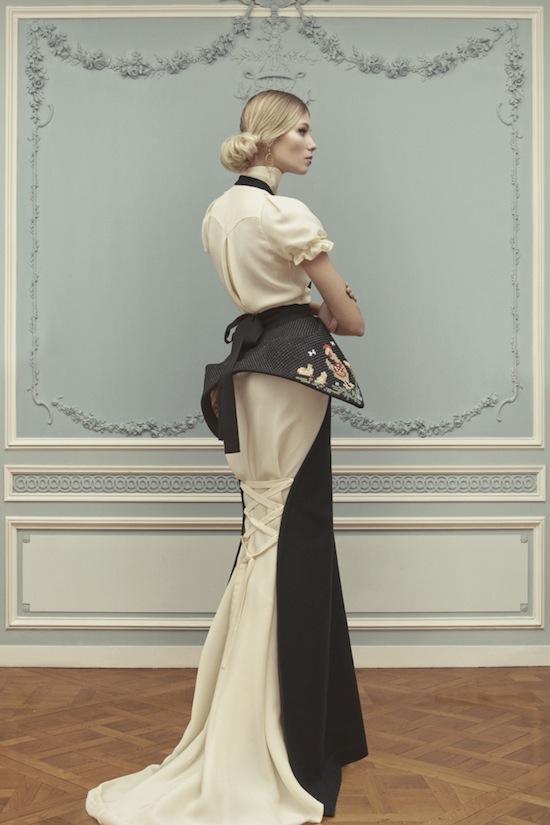
JOURNAL
documenting
&
discovering joyful things
What would Anna Karenina wear?
“He stepped down, trying not to look long at her, as if she were the sun, yet he saw her, like the sun, even without looking.” - Leo Tolstoy, Anna Karenina



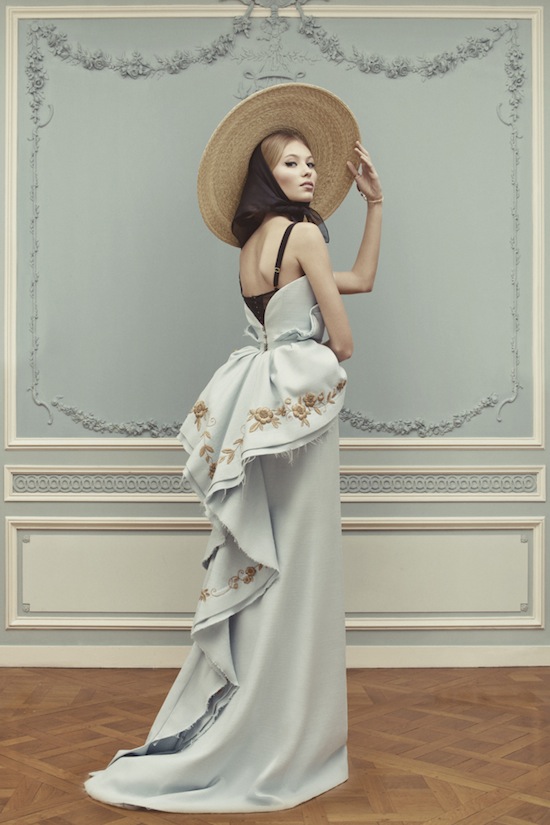
 This photo shoot makes me feel like Anna Karenina has just stepped into our time. I am picturing snow, and Grand Tours, and lonely wealth, and art and love and lust and disgrace, and each unhappy family unique from all the others.
This photo shoot makes me feel like Anna Karenina has just stepped into our time. I am picturing snow, and Grand Tours, and lonely wealth, and art and love and lust and disgrace, and each unhappy family unique from all the others.
It's been many years since I read Anna Karenina. It's one of those sweeping books, I think. It swept me along, miserable in the inevitability of Anna's decline, and yet compelled to keep on reading. It was also grand and vast and old and beautiful.
It might almost be time for me to read it again. Almost. I think I need a few good nights' sleep before I tackle that particular emotional journey.
Meanwhile these dresses, aren't they glorious in all their old-world rewritten charm? They are from here and I don't even know what I'm looking at or what I'm (not) reading, but I couldn't resist sharing because they are so beautiful. Bring back bustles!
“All the variety, all the charm, all the beauty of life is made up of light and shadow.” - Leo Tolstoy, Anna Karenina
McArdle's Mind (fragment)
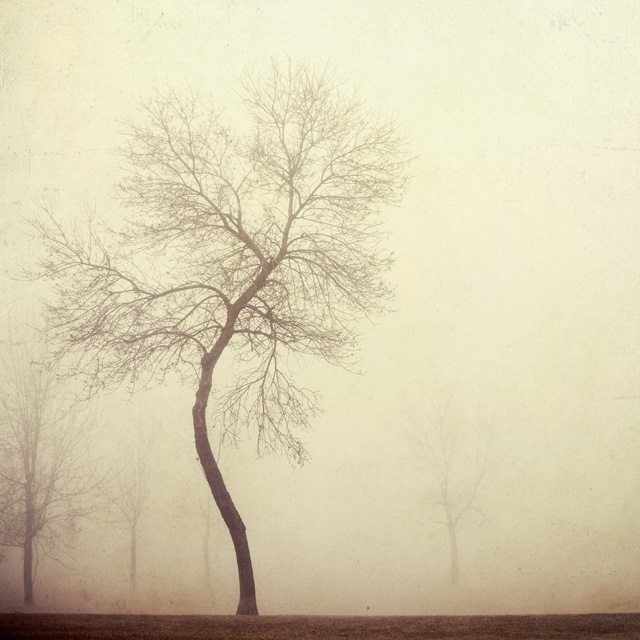 May 17, 1926. As McArdle rode his mare out through the morning fog, he turned his eyes away from his well defined and self-sufficient farm and looked inward, instead, to the places were there were still mysteries.
May 17, 1926. As McArdle rode his mare out through the morning fog, he turned his eyes away from his well defined and self-sufficient farm and looked inward, instead, to the places were there were still mysteries. McArdle’s lids were closed as he allowed the mare to amble slowly that particular late-autumn morning, but his eyes were very much awake.
McArdle’s lids were closed as he allowed the mare to amble slowly that particular late-autumn morning, but his eyes were very much awake.
They were searching inside his mind, darting left and right, spinning in their sockets, seeking out the hotspots of emotion, the green and verdant ideas, even the dark places furthest hidden where waited the angry jealousies of which he was most ashamed.
He rode on the border, the very cliff’s edge between What Seems and What Is:
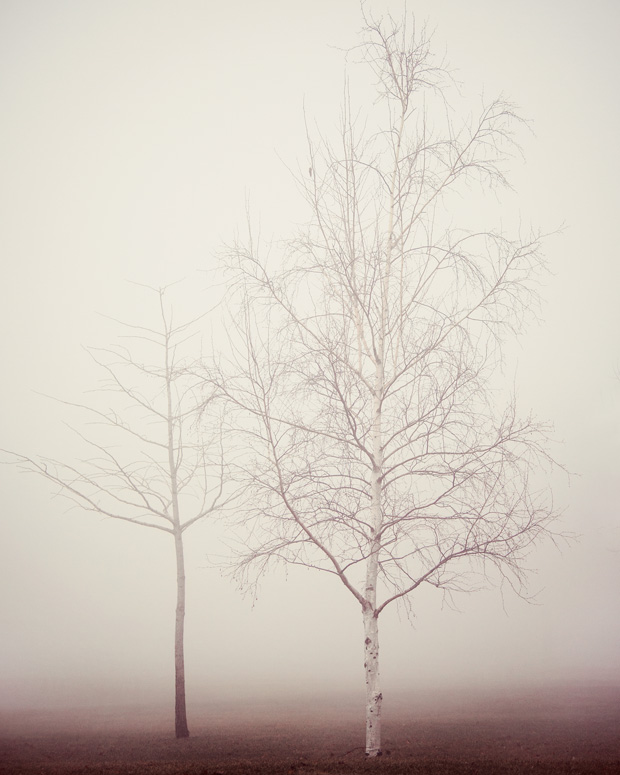 To McArdle's right, sun rose through fog-pockets over well-managed fields.
To McArdle's right, sun rose through fog-pockets over well-managed fields.
To his left, darkness oozed and crept and whispered through the time-forgotten bush, a thousand rustling Somethings still clinging to night while the day yawned and stretched.
Straight ahead, yellow light glowing in the windows of the manager's house, warm with Mrs Anderson’s breakfast sizzling on the stove.
But inside and behind, mysteries. A vast and shadow-filled landscape-of-the-mind that, if ever it were unfolded, would spread and smother the breadth of this continent in its arteries and thoughts, as well as half of Antarctica and a goodly portion of Asia, then stretch and extend its eastern edges, slowly, island by island, towards the shores of Argentina.
 Eventually, if left to its own devices, McArdle’s mind turned inside out would wrap itself over the entire globe. All its edges would meet and merge and smother the land until nothing of Earth would appear as it once was.
Eventually, if left to its own devices, McArdle’s mind turned inside out would wrap itself over the entire globe. All its edges would meet and merge and smother the land until nothing of Earth would appear as it once was.
Space travellers would find in their journeys through our galaxy not a blue planet but a red-and-purple one, filled with blood and a visible pulse, electric thoughts sparking emotions and ideas across the surface with such startling frequency and force that our world would appear beset by deadly and impregnable storms.
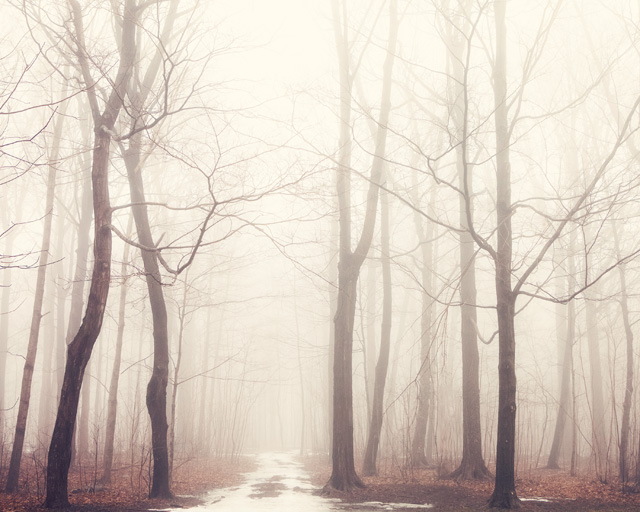 Text: McArdle's Mind, a fragment from a story I've been writing about a man who gets so lost in the world of his own thoughts that he becomes trapped, unable to return to the 'physical' world of action and community and time.
Text: McArdle's Mind, a fragment from a story I've been writing about a man who gets so lost in the world of his own thoughts that he becomes trapped, unable to return to the 'physical' world of action and community and time.
Images: gorgeous, ghostly bush photos by Irene Suchocki of Eye Poetry, who kindly gave me permission to use them here. Irene's blog is linked above, and you can buy the stunning photographs at her print shop.
Ocean mystery (fragment fiction)
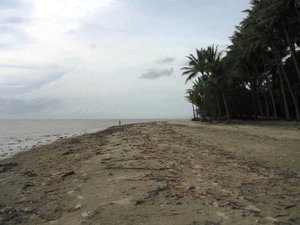 A mystery was not what Lucy expected to find at the bottom of the ocean.
It started on holidays: a dizzying dance of cocktails by the swimming pool overpriced resort food drunken nights at local bars salty sex in anonymous hotel rooms avenues of palm trees camel rides on acres of white sand rainforest walks and the world famous Great Barrier Reef.
A mystery was not what Lucy expected to find at the bottom of the ocean.
It started on holidays: a dizzying dance of cocktails by the swimming pool overpriced resort food drunken nights at local bars salty sex in anonymous hotel rooms avenues of palm trees camel rides on acres of white sand rainforest walks and the world famous Great Barrier Reef.
This particular day started with clouds and two fat travel-sickness tablets, and whorled around her head as time stopped then spun and rain stung her cheeks while she leaned over the crashing boat and vomited the two useless tablets to the fish until suddenly, time became normal and they had reached the reef and the sun was out.
Busy throwing up, Lucy had missed the dive briefing and had to make do with some basic tips: breathe, kick your legs and look at fish. Clear your middle ear every few feet down. And never, not for a second, hold your breath. Lucy staggered, still sick-weak, the crushing weight of the cylinders on her shoulders threatening to pull her backwards, fumbling with the unfamiliar mask, cumbersome regulator and ridiculous fins, and changed her mind. This was not such a good idea, she would go back inside. Then the assistant let go of Lucy’s hand, gave her a push, and the ocean closed in.
Quiet.
Soft.
Still.
Slow.
Nothing but Lucy’s own breathing and the heartbeat of the ocean.
She could hear the regular thump of the ocean’s heart and felt it in her skin as though she was floating through the very ventricles of the sea. It was extraordinary that here, immersed in one of the natural wonders of the world, Lucy closed her eyes and felt she loved it without needing to see it and later when she surfaced, grieved the loss of that heartbeat like the tearing trauma of a second birth.
Lucy moon-walked through the thick water while the others swam, appearing on the tourist video later as a slim, sloping, laughable figure in black, always last in the group, ludicrous pink fins flailing, arms groping forward like a blind man but eyes wide open now, like dinner plates behind the mask, and red hair pouring upwards, the only part of Lucy at home in the sea.
Nobody knew that here inside the ocean, mixed in with her terror, her constant struggle to remember not to hold her breath and a consistent dread that her lungs would burst or collapse or both, Lucy felt truly happy.
She felt it because all she could hear was her own breathing and the heartbeat of the ocean. It was the most perfect music Lucy had ever known.
The catamaran carried them to a second part of the outer reef, and suddenly it was sea-sickness again. Half an hour of the nauseating rise and crash of the waves, petrol fumes, the stifling, constricting stomach and the familiar lean over the sides. Then the heavy cylinders, the clumsy fin-walk, the fear perspiring into her wetsuit, panic and regret, splash.
And the beautiful silence. Lucy’s own breathing and the heartbeat of the ocean.
On the second dive, Lucy made a conscious effort to look around. She wanted to see and remember the rainbow schools of fish, the ancient turtle, the bashful shark. Lucy put her hand inside a giant clam and stroked its rich velvet before it slowly closed. She floated softly still while a groper twice her width nudged around her hands for treats. The group of divers entered a sandy-floored coral room by a window, one by one, and a hundred thousand tiny blue fish covered them like brilliant pieces of sky. When Lucy moved her hand through the swarm, it parted then merged again in effortless mathematical precision.
Then the heartbeat stopped.
One moment Lucy was playing patterns with the sky-fish and in the next, the ocean held its breath. Lucy was so distressed she almost held hers, but remembered the warnings just in time. She waited, frantic. The others had swum on out of the coral room and around a corner, and Lucy was alone in the unbeating ocean. She spun in the water, searching behind herself and in front for the source of the silent ocean, but it was not until she looked up and saw the legs and goggles of the snorkellers close above her that she realised with relief that the heartbeat had not stopped, she had simply floated too close to the surface and lost its rhythm.
Urgently, Lucy swam deeper, easing air from her tanks to help her sink and forgetting to unblock her ears until she felt the pain. She stopped then, and clumsily swallowed through her regulator. She was still alone, but the heartbeat was back in her skin, her own breathing was a soothing sound, and Lucy was happy again. She followed after the rest of the group.
Lucy swam on quickly now, past another giant clam, a turtle resting under a rock, sweet, apricot anemones, nervous clown fish, a small child, forests of coral…
The child was maybe three or four years old, and it was building a sandcastle. It sat naked on the ocean floor, piling sticky wet sand on sticky wet sand and pressing rocks and shells and pieces of coral into the sides, while remnants of the blue-sky swarm shot in and out of the clumsy sand walls and stroked the child’s tight brown curls. When Lucy swam past, the child waved, and she waved back. She tried to smile but her cheekbones pushed her mask up and it flooded with water so she had to stop smiling or not see.
Then the group leader returned from around the next corner and beckoned to her and she nodded then pointed to the child but there was nobody there, just the remnants of the sloppy sandcastle, so she swam on.
Quite a mystery.
The time travellers and me
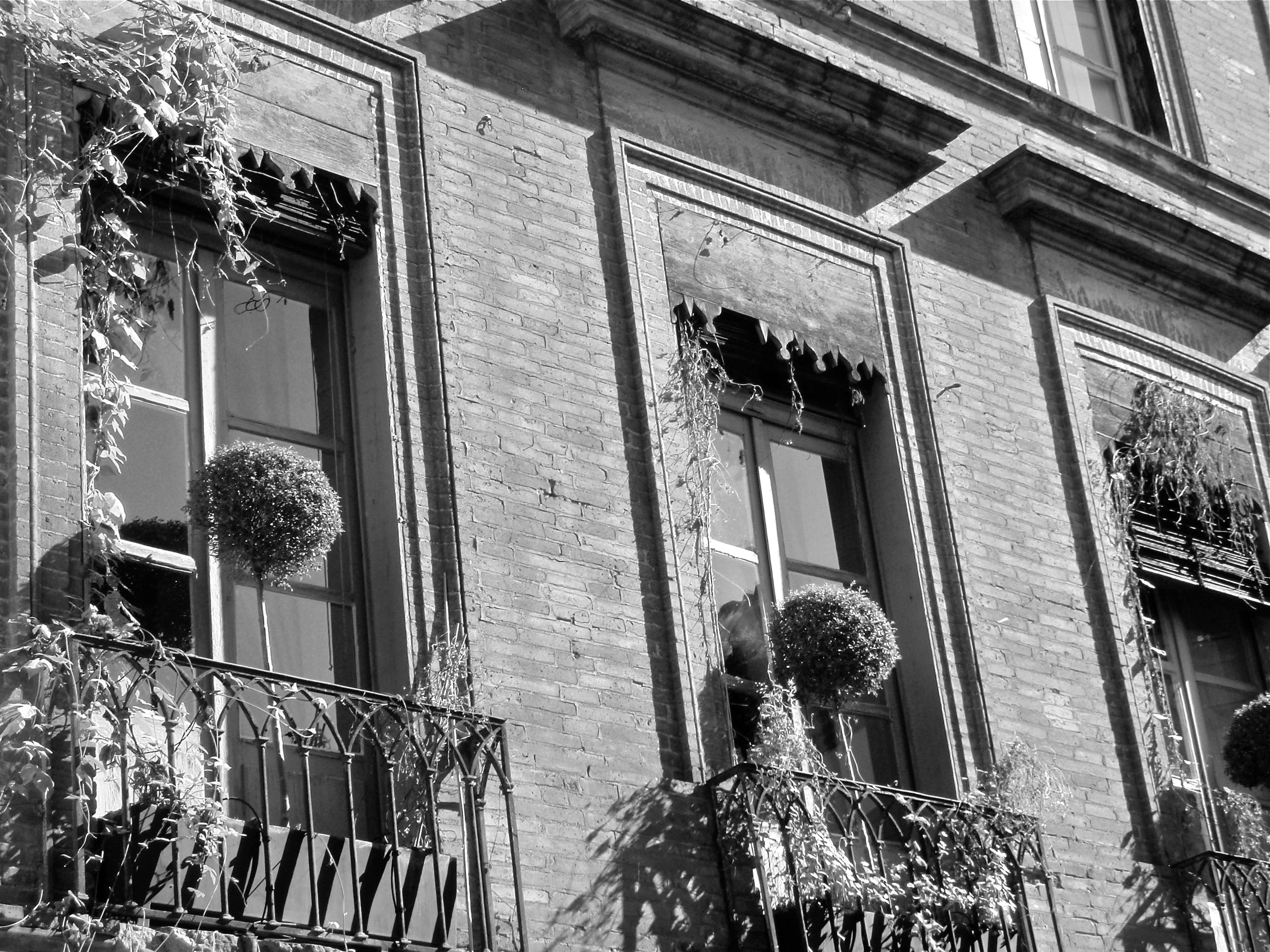 On the weekend, I dreamed I met two time travellers. One could slide into the future, the other could slide into the past. I watched them disappear, their bodies pixelating in rainbow colours, and then they were gone, shimmying through time to see things and learn things and fix things and change things. A minute later, they were back, having lived lifetimes. Or moments. Or both.
I said, "Must you go alone?" And they said no, they could take me through time, too. So one of them held out his hands and I took them, facing him and holding on tight. He said "Don't let go."
On the weekend, I dreamed I met two time travellers. One could slide into the future, the other could slide into the past. I watched them disappear, their bodies pixelating in rainbow colours, and then they were gone, shimmying through time to see things and learn things and fix things and change things. A minute later, they were back, having lived lifetimes. Or moments. Or both.
I said, "Must you go alone?" And they said no, they could take me through time, too. So one of them held out his hands and I took them, facing him and holding on tight. He said "Don't let go."
My first thought was, "this journey is taking a lot longer than I expected." I guess travelling through time can take time. When we pixelated, now it was in black and white. We dissolved into the static of an old television screen, and the world around us swirled into a snowstorm at night (and then a coal-storm on snow). Sometimes, as we passed through the storms, the black pixels would form into almost-shapes, almost-people, but then they would disappear again.
Back in the present, the time travellers took me to the Mystery Room, their home. A derelict space under a building secured by a metal grill door, the Mystery Room had a bare cement floor cluttered with the rubbish and flotsam of the city street: old McDonalds wrappers; yellowed sheets of newspapers; and takeout coffee mugs, faintly stinking of warm, bacterial, off, milk.
But once inside, we disappeared. Nobody passing by could see anything but the rubbish, and we were completely invisible, more: un-sensable. In my dream, this was very important not only for the safety of the time travellers but also for their mission, which I cannot tell you. People stuck their faces through the locked grill and we boldly stood just centimetres from their noses, grinning because all the people could see and smell was rubbish.
Then the unthinkable happened. A government official came to the locked grill. He opened the gate, and he spoke to me. He said, "Your rent has not been paid, you are being evicted." The time travellers stood behind me in horror. "Pay the rent! Pay the rent!" they yelled, passing me a wad of cash. So I did, and I signed the new lease myself, forever binding my fate with the Mystery Room.
Instantly, the government official could no longer see us. In fact, it was as though he had never known we were there, the mystery of the room was intact. He looked blankly past us through the gate, screwing up his nose at all the rubbish and the bad smells. But as he left, he slid an envelope under the grill: a fine, due for late payment of rent.
We were trapped. The official didn't know we were there, so we had no way of paying him the money. Bureaucracy could yet destroy the Mystery Room.
I woke up.
What do you think it all means?
Found: the Seven Dwarfs' cottage
At last, dawn woke the forest to the song of the birds, and Snow White too, awoke. A whole world was stirring to life and the little girl was glad to see how silly her fears had been. On she walked until she came to a clearing. There stood a strange cottage, with a tiny door, tiny windows and a tiny chimney pot. Everything about the cottage was much tinier than it ought to be. Snow White pushed the door open.
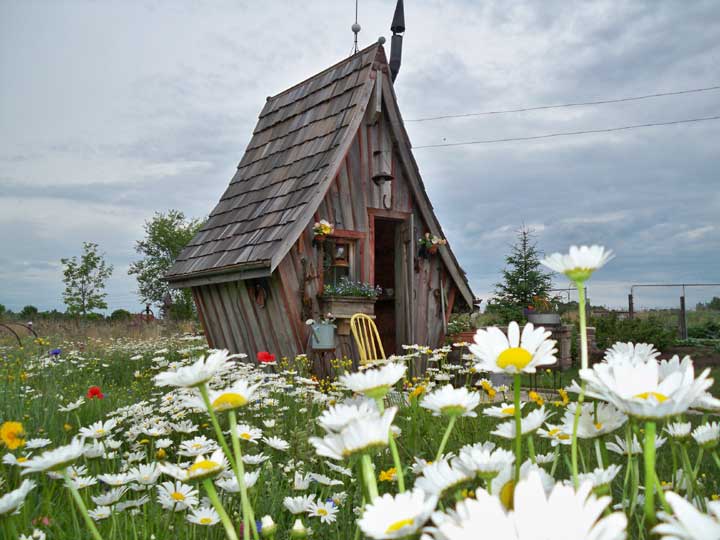 "I wonder who lives here?" she said to herself, peeping round the kitchen. "What tiny plates! And spoons!" Upstairs was a bedroom with seven neat little beds. Going back to the kitchen, Snow White had an idea.
"I wonder who lives here?" she said to herself, peeping round the kitchen. "What tiny plates! And spoons!" Upstairs was a bedroom with seven neat little beds. Going back to the kitchen, Snow White had an idea.
Toward dusk, seven tiny men marched homeward singing. But when they opened the door of their house, to their surprise they found a bowl of hot steaming soup on the table, and the whole house spick and span. Upstairs was Snow White, fast asleep on one of the beds.
The chief dwarf prodded her gently. "Who are you?" he asked. Snow White told them her sad story, and tears sprang into the dwarfs' eyes.

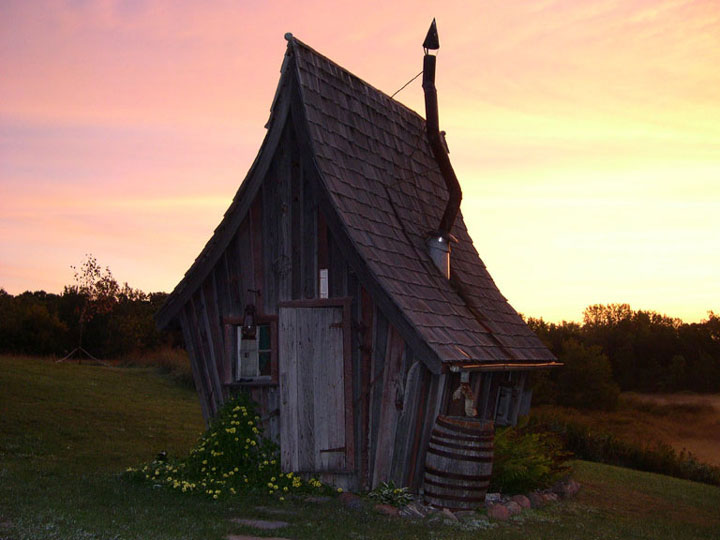 I am utterly in love with these adorable cottages from The Rustic Way, which can be fitted out as guest houses, garden sheds, saunas and children's playhouses. They are just like a fairy tale come to life, don't you think?
I am utterly in love with these adorable cottages from The Rustic Way, which can be fitted out as guest houses, garden sheds, saunas and children's playhouses. They are just like a fairy tale come to life, don't you think?




